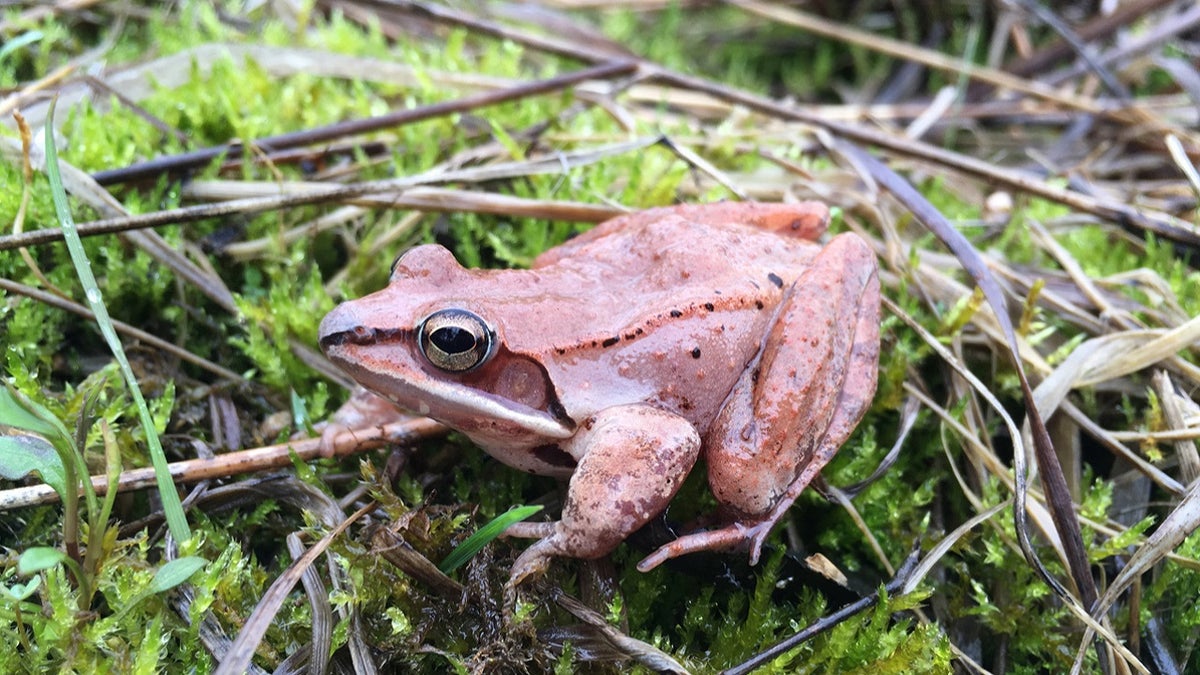
A wood frog is seen in Ohio, April 24, 2018. In a report released May 1, 2018, scientists have found that wood frogs, which don’t urinate in the winter, recycle urea, the main waste in urine, into useful nitrogen which keeps the small animals alive as they hibernate and freeze. (Associated Press)
Wood frogs hold in urine all winter as a survival mechanism by recycling urea, according to a study published Tuesday.
In Alaska, wood frogs go eight months without urinating, and now scientists have figured out how they do it – more accurately, how they survive without doing it.
Special microbes in the frogs’ guts recycle the urea, which is the main waste in urine, the study in the journal Proceedings of the Royal Society B reported.
In turn, recycling urea into useful nitrogen keeps the small frogs alive as they hibernate and freeze, inside and out.
Although it doesn't warm them up, urea still protects cells and tissues, even as the critter's heart, brain and bloodstream stop.
Some call the frog urine a type of antifreeze, but study co-author Jon Costanzo, a zoologist at Miami University in Ohio, bristles at that term.
"Their eyes are white. Their skin is frosty. They're like little rocks. They're frozen," Costanzo said.
If the frogs were human, they would be called dead, he said. In fact, the CBC said that these wood frogs are one of the only creatures that can be described as “the living dead."
Alaskan wood frogs get as cold as zero degrees, Costanzo said.
But once the temperatures warm near springtime, the frogs come back to life; they thaw and begin feeding and mating again, the National Wildlife Federation (NWF) reported.
Costanzo said they wake up in still-cold February to mate.
While thawing, their hearts resume beating even before ice in the body has completely melted, and pulmonary respiration and blood circulation are restored soon thereafter, according to Constanzo's 1997 Miami University study.
Other animals don't urinate when they hibernate, but mammals don't do the big freeze quite like wood frogs.
"This is stress that would definitely kill any mammal," Costanzo says. "People are fascinated by bear hibernation, but in my book any animal that allows itself to freeze solid and is able to recover from it and walk away and thus go about its business like nothing happened, to me that's about as cool as it gets."
Wood frogs live all over America and are the only frogs that live north of the Arctic Circle, the NWF reported.
The Associated Press contributed to this report.